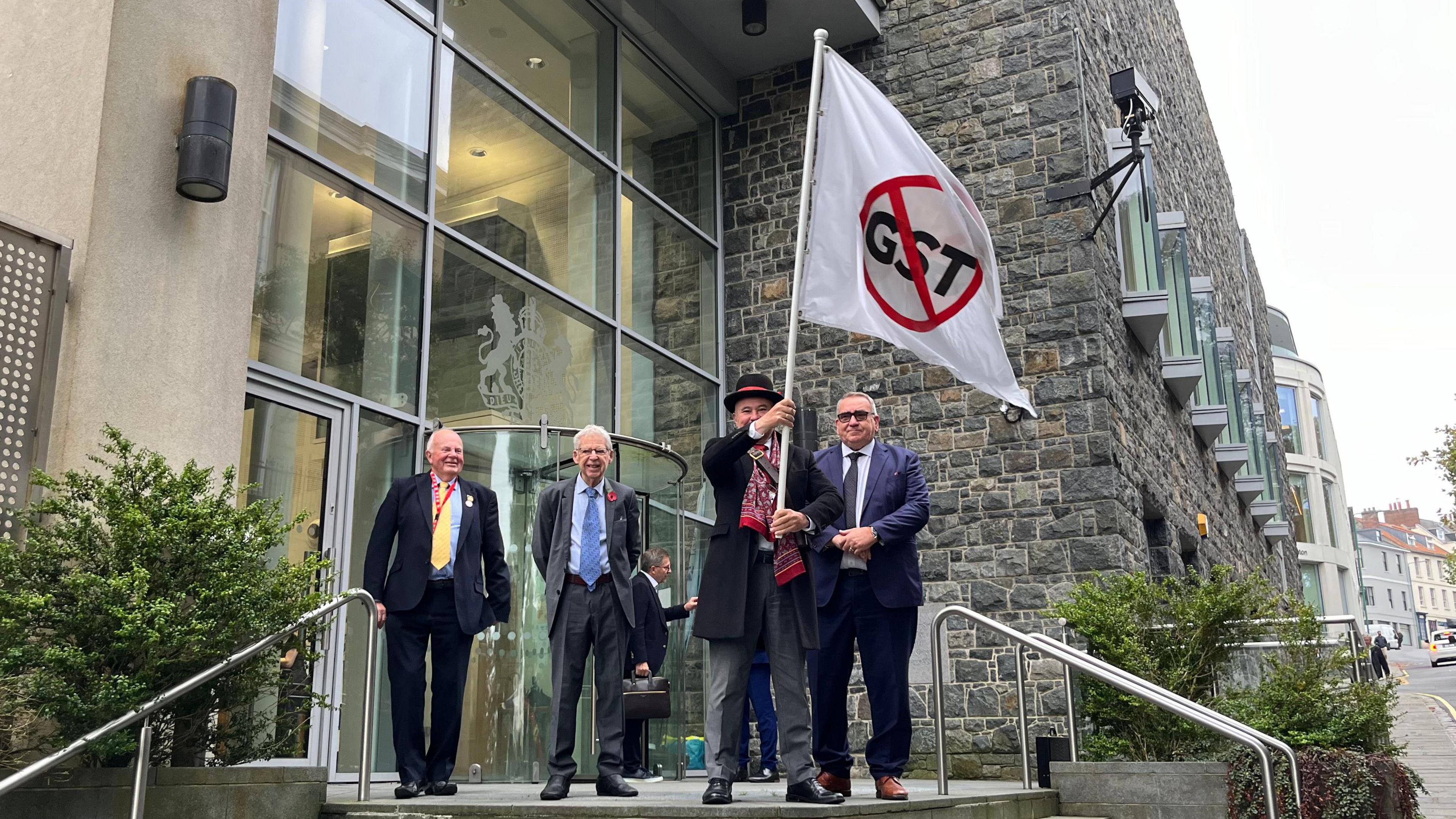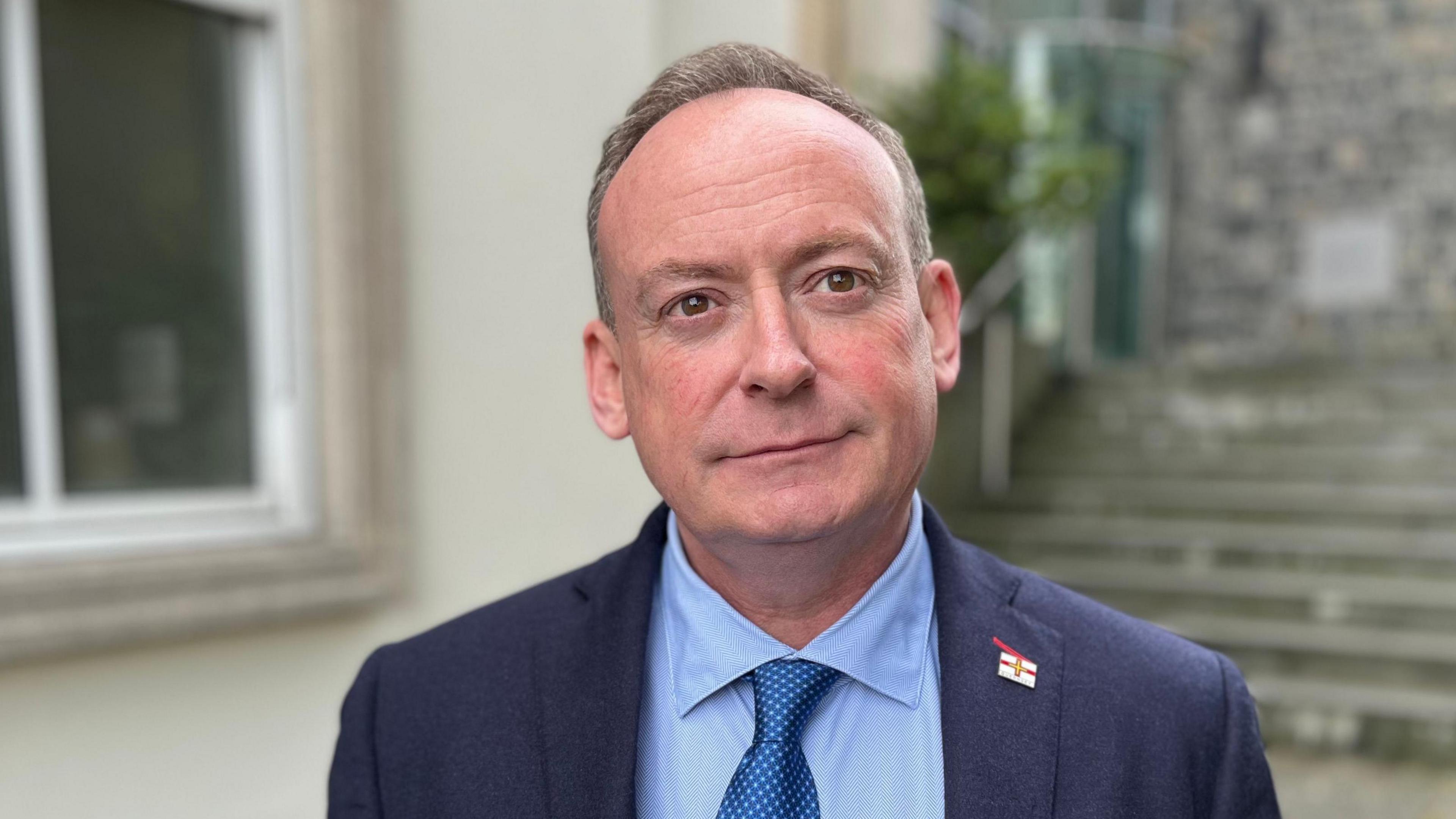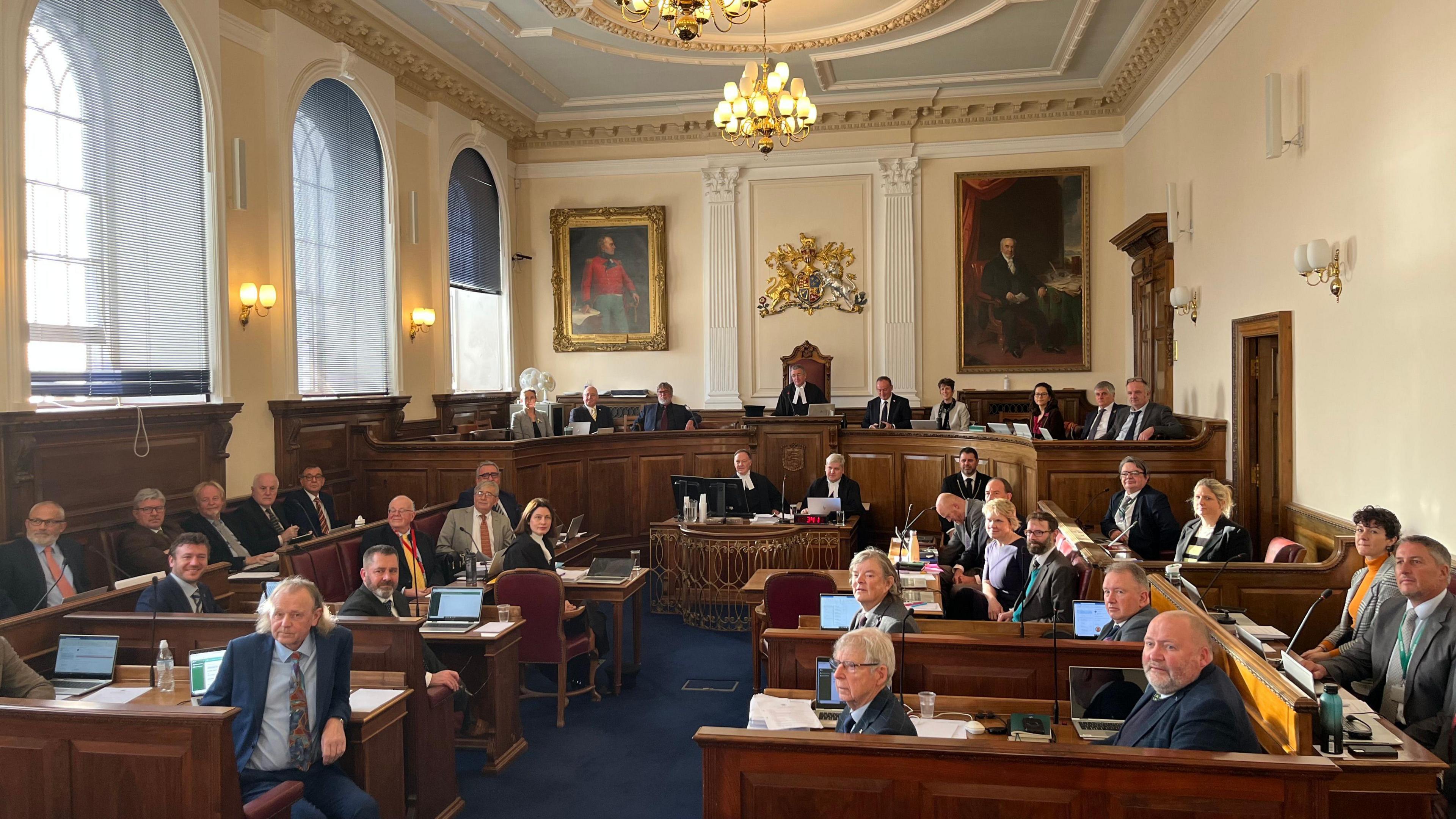Why Guernsey's public finances was focus of 2024

Anti-GST campaigners have promised to make the 2025 general election a single issue poll on the controversial sales tax
- Published
Guernsey's chief minister promised at the end of 2023, as he took over from the deposed Deputy Peter Ferbrache, the States would not have its fourth set-piece debate on the future of public finances.
Fast-forward 11 months and as part of the budget for 2025, the issue of whether taxes should rise to fund public services was the only show in town politically.
Would it be a temporary 2p in the pound increase to income tax, a package of tax reforms including a GST and lower income tax rates or sweeping cuts to public services?
Twice this political term proposals for a GST were put forward and twice they were rejected.
But 2024 would be different as proposals to bring in a 5% GST, a 15% income tax rate for earnings under £30,000 and a reform of social security contributions were approved following a move by Deputy Peter Roffey to resurrect the seemingly doomed package.

Deputy Peter Roffey was part of the original team of politicians who came up with the GST tax reform package
The 2023 accounts according to Deputy Chief Minister Heidi Soulsby showed the island had "a good year", reporting a surplus overall surplus of £63.7m.
Within five months though, storm clouds were gathering, with the normally optimistic sounding Policy and Resources (P&R) President Lyndon Trott highlighting a missing £16m in the budget for next year because of an "error".
Less than three weeks later and those clouds emptied on the assembly, with news of a "£24m deficit this year" meaning for Deputy Trott it was now "time to make some tough decisions".
But tidings of doom on the future of public finances are not a new thing for this assembly as for three years the previous P&R Committee had warned the island "had no money left".
Evidently the state of play for the island's long-term finances had not changed materially during 2024.

Deputy Lyndon Trott's plans for a temporary increase to income tax were rejected
So what changed to lead to States members backing the GST package?
It is hard to tell, but after wrangling with the issue of tax reform across four years, this States can now say it has made progress towards broadening the way it brings in money, away from just primarily income tax by approving the GST package.
Budget Reaction: GST approved, what next?
This assembly has been characterised by disagreements on future finances and it has led to frustration from States members at their ability to make any real progress politically.
The housing crisis is an obvious case study, the States has endorsed a housing plan, external.
But Environment and Infratructure's leadership know they don't have the resources to get the work done in a way befitting a "crisis".
It has led to what has typified the last few months of this year politically, discussions about how government works and whether it is either helping or hindering progress - despite the group comissioned to look at just that being paused.
Follow BBC Guernsey on X, external and Facebook, external. Send your story ideas to channel.islands@bbc.co.uk, external.
Related topics
- Published31 December 2023

- Published8 November 2024
